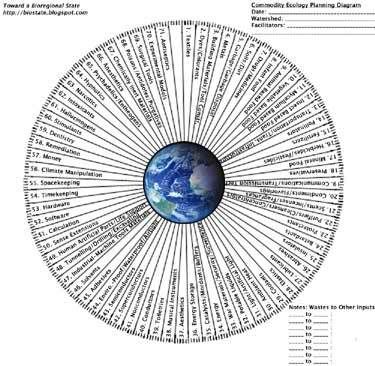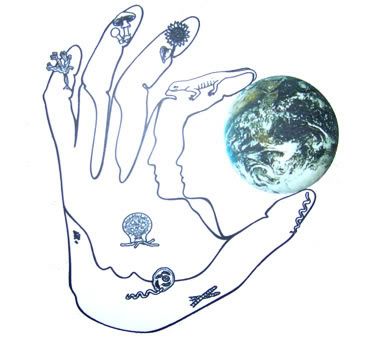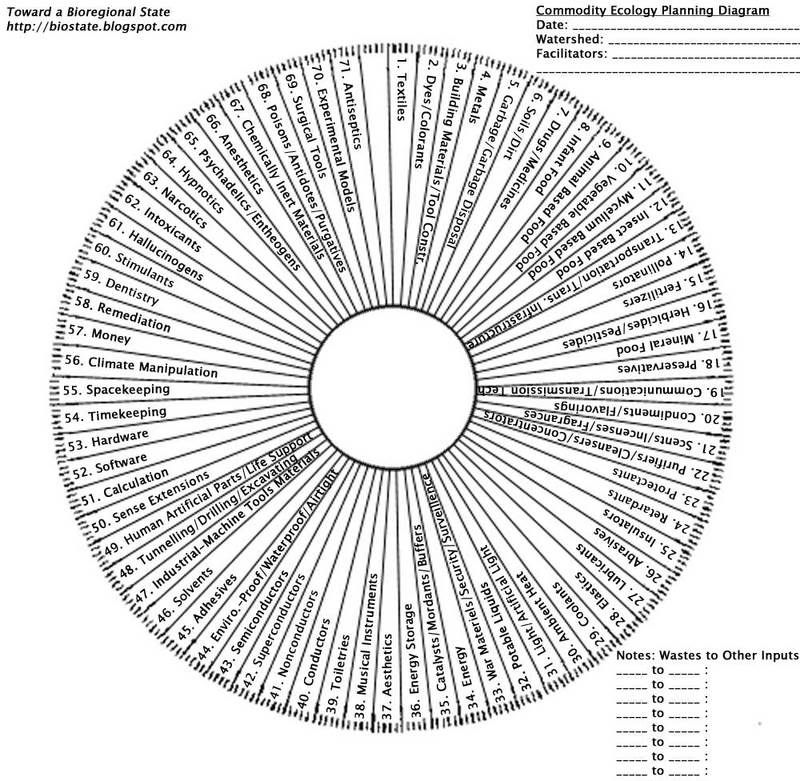Caduceus Mercurius
Holofractale de l'hypervérité
- Inscrit
- 14 Juil 2007
- Messages
- 9 628
I was doing an image search for the term "entheogenic retreat" (for no serious reason, it was for the picture association thread), and saw a peculiar image that vaguely resembled a spore print. It was this image:

I clicked on the image to visit the site, and while scrolling through the text I noticed another image also featured mushrooms.

Scrolling through the text I suddenly noticed the author considers "psychedelics/entheogens" one of 71 "commodity choices" (the 71 gills of the above image) that he will continue to discuss on his blog. I thought some of you might be interested.
He didn't write the blogs on psychedelics yet. What I find interesting is that he already separated hallucinogens (I guess he means deliriants) from psychedelics:
# 60. Stimulants
# 61. Hallucinogens
# 62. Intoxicants
# 63. Narcotics
# 64. Hypnotics
# 65. Psychedelics/Entheogens
# 66. Anesthetics

This is the address of the blog: http://commodityecology.blogspot.com/
About the author: Environmental sociologist Mark D. Whitaker is a comparative historical researcher on the politics of environmental degradation and sustainability. Toward A Bioregional State is his novel approach to development and to sustainability. He proposes that instead of sustainability being an issue of population scale, managerial economics, or technocratic planning, an overhaul of formal democratic institutions is required. This is because environmental degradation has more to do with the biased interactions of formal institutions and informal corruption. Because of corruption, we have environmental degradation. Current formal democratic institutions of states are forms of informal gatekeeping, and as such, intentionally maintain democracy as ecologically “out of sync

I clicked on the image to visit the site, and while scrolling through the text I noticed another image also featured mushrooms.

Scrolling through the text I suddenly noticed the author considers "psychedelics/entheogens" one of 71 "commodity choices" (the 71 gills of the above image) that he will continue to discuss on his blog. I thought some of you might be interested.
He didn't write the blogs on psychedelics yet. What I find interesting is that he already separated hallucinogens (I guess he means deliriants) from psychedelics:
# 60. Stimulants
# 61. Hallucinogens
# 62. Intoxicants
# 63. Narcotics
# 64. Hypnotics
# 65. Psychedelics/Entheogens
# 66. Anesthetics

This is the address of the blog: http://commodityecology.blogspot.com/
About the author: Environmental sociologist Mark D. Whitaker is a comparative historical researcher on the politics of environmental degradation and sustainability. Toward A Bioregional State is his novel approach to development and to sustainability. He proposes that instead of sustainability being an issue of population scale, managerial economics, or technocratic planning, an overhaul of formal democratic institutions is required. This is because environmental degradation has more to do with the biased interactions of formal institutions and informal corruption. Because of corruption, we have environmental degradation. Current formal democratic institutions of states are forms of informal gatekeeping, and as such, intentionally maintain democracy as ecologically “out of sync